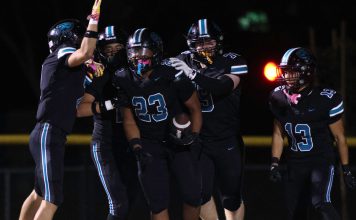I heard a story once of a little bird who sees a forest fire as
he looks down from his vantage point high in the sky. The bird
quickly flies to fill his beak with water, flies back over the
fire, drops water on the fire, and then flies back again to repeat
the process.
I heard a story once of a little bird who sees a forest fire as he looks down from his vantage point high in the sky. The bird quickly flies to fill his beak with water, flies back over the fire, drops water on the fire, and then flies back again to repeat the process.
Many of you have followed the story of a refugee from Sudan named Angelo Bul through the columns I have written. He came to live with me and my husband for a year and is still being helped by friends in Gilroy.
I wanted so much to change Angelo’s life here, but his problems turned out to be bigger than I could handle. Sometimes when you agree to something, you don’t really know what you are getting into.
When the day came that Angelo left our home, he washed his clothes, went through all his stuff, made his bed, and packed up his catechism and his tapes of music from Africa. He refused a ride, looking so forlorn as he walked away from our house, taking only what was most important to him in his little backpack. As I watched him walk away so alone, I felt like a failure. My husband said, “It wasn’t supposed to end like this. … we were trying to help.”
The cause underlying Angelo’s pain can be traced back to the civil war in his country, and this is yet another example of the horrible fallout of war and how far-reaching the consequences are. If his country wasn’t at war, he would probably have lived all his life in relative happiness with his family, satisfied with his own culture and content to remain in Africa. But because of the devastation of war, he lost all the normal and stabilizing influences of culture, family, country, community, and companionship.
When I visited him at his new home last Friday night, he seemed to be doing much better. I asked him how he had found more recent help.
“I picked up the phone,” he told me, “And called 911.”
“You did what?” I asked.
“I heard that 911 is where you call for help. The operator asked me if I was serious. I said yes. She told me who to call.”
It seems that the same skills of adaptation that enabled him to survive wild animals, soldiers, and starvation in Sudan serve to make him a survivor of a different kind now in the difficult terrain of my culture. As he navigates the jungles of bureaucracy to seek counseling and education, he has taught me to see him as a human being equal to anyone in my own culture, in spite of his being from a tribe in Africa that is too easily labeled “primitive.”
Expressing his need to take care of himself, he said, “I don’t want to be a tick.” Laughing as he told me about his English class, he said, “My wounded English needs to be treated.”
I have come to realize that it is important to evaluate our actions not so much by their outcomes, but by our original intentions. While my intentions were good, it is also true that much more was going on in and with Angelo than I ever imagined. As my knowledge of Angelo’s situation deepened, I kept trying to help with a little more insight. In the end, what had been apparent for some time became unavoidable, namely, that I had done what I could without being able to satisfy deep-seated needs of someone in his situation.
The most that we can try to do, it seems, is to act in a loving manner to others no matter what condition we find ourselves in. None of us do this with complete consistency. Inevitably, therefore, we are only undefeated in this kind of effort because we keep on trying.













